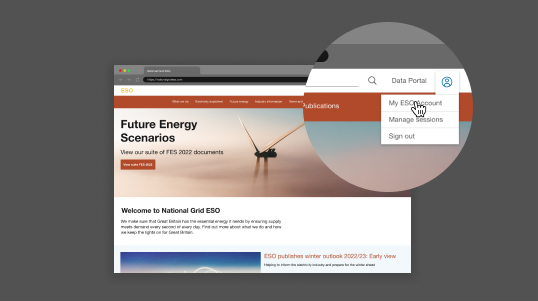Unsolicited and scam emails
When and how we may contact you by email
In the course of our business we may contact you by email to advise about the services we offer or activities we need to undertake in your area. We are committed to respecting your privacy and to complying with applicable data protection and privacy laws.
We will never:
- ask you to email us any personal information, such as payment/financial details or your address
- ask you to tell us your password
- send you programs to install on your computer.
Before disclosing any personal information online, make sure you know who you are dealing with and be suspicious of anyone who asks for your bank account or credit card details or asks for your password and do not click on any links or email attachments unless you are sure you can trust the sender.
Email scams
You may be aware that numerous scams are in operation that are designed to get you to provide personal details, including details of your bank account or credit card, for fraud or 'identity theft' purposes.
Some of these scams may try to use the brand of a reputable business, such as National Grid, in order to appear legitimate. We treat these scams very seriously. If you are concerned about an unsolicited or unexpected email that appears to come from National Grid please let us know immediately by sending an email to [email protected].
What can you do to protect yourself online?
You can also take action to protect yourself online. The following advice on this can help ensure you and your data are protected.
Install the latest security updates and patches on your computer:
Check for the latest patches and updates for the programmes including the operating system and web browser installed on your computer. These updates are important as they can correct and strengthen weaknesses discovered in the software.
Install antivirus and antispyware software:
Antivirus software can help to prevent, detect and remove malicious software such as computer viruses and worms on your computer. If you already use anti-virus software be sure it is updated with the latest virus definition files.
Spyware are programs which run on your computer to monitor and record the way you browse the Internet, sites you visit, personal information that you have entered online, including passwords, telephone numbers, credit card numbers and identity card numbers. Some antivirus software may also include antispyware functionality to help protect against unwanted snooping. Alternatively there are stand alone antispyware programmes also available.
When downloading antivirus or antispyware software, be sure to visit the genuine site as there are many fake products claiming to protect your computer but which may actually infect it with viruses.
Make sure your personal firewall is turned on:
Your computer will contain a program called a firewall which will protect it from unauthorised traffic from between the Internet and your computer. It is usually turned on automatically but you can verify this and configure the firewall settings by selecting the network settings on your computer.
Tell tale symptoms of infection:
- Your computer seems sluggish
- It stops responding or locks up
- It crashes and restarts every few minutes
- Applications run abnormally
- Disks or disk drives are inaccessible
- You can't print correctly
- Unusual error messages appear
- Menus and dialogue boxes are distorted
- You see pop-up advertisements all the time
- Your settings have changed and you can't change them back
- Your web browser, e.g. Internet Explorer, contains additional features you don't remember downloading.
What should you do if this happens?
If you think there might be virus/spyware on your computer, run anti-virus/anti-spyware software to remove it before you download other programmes or open emails.
Unsolicited e-mail
If you receive any e-mail from an unrecognised source, you should delete it without opening it. Spam e-mails can be used to elicit personal details from you without your knowledge, and infect your computer with malicious software by inviting you to click on a link or opening an attachment.
Be particularly wary of un-solicited e-mails appearing to come from a trusted source asking you to validate your logon/payment credentials. National Grid will never contact you either by email or phone and ask you for personal and/or account information.
Most e-mail clients have a spam filter which will automatically route spam mail to a separate inbox. Deleting unwanted spam without reading it will also protect you from most phishing e-mails. Password-protect your computer
Strong passwords will prevent other people from using your devices it if they are left unattended or stolen. Do not use personal identifiers such as national insurance, social security etc as your username or password. When creating your password it is good practice to use a combination of letters, numbers and special characters. Always log off
Remember to log off from all websites that require you to log in, i.e.: social networking, online banking, online shopping websites. This will make it harder for unauthorised access to your online accounts if your computer is infected or stolen.
Contact us
To report a possible or actual security incident, please email us at [email protected].
